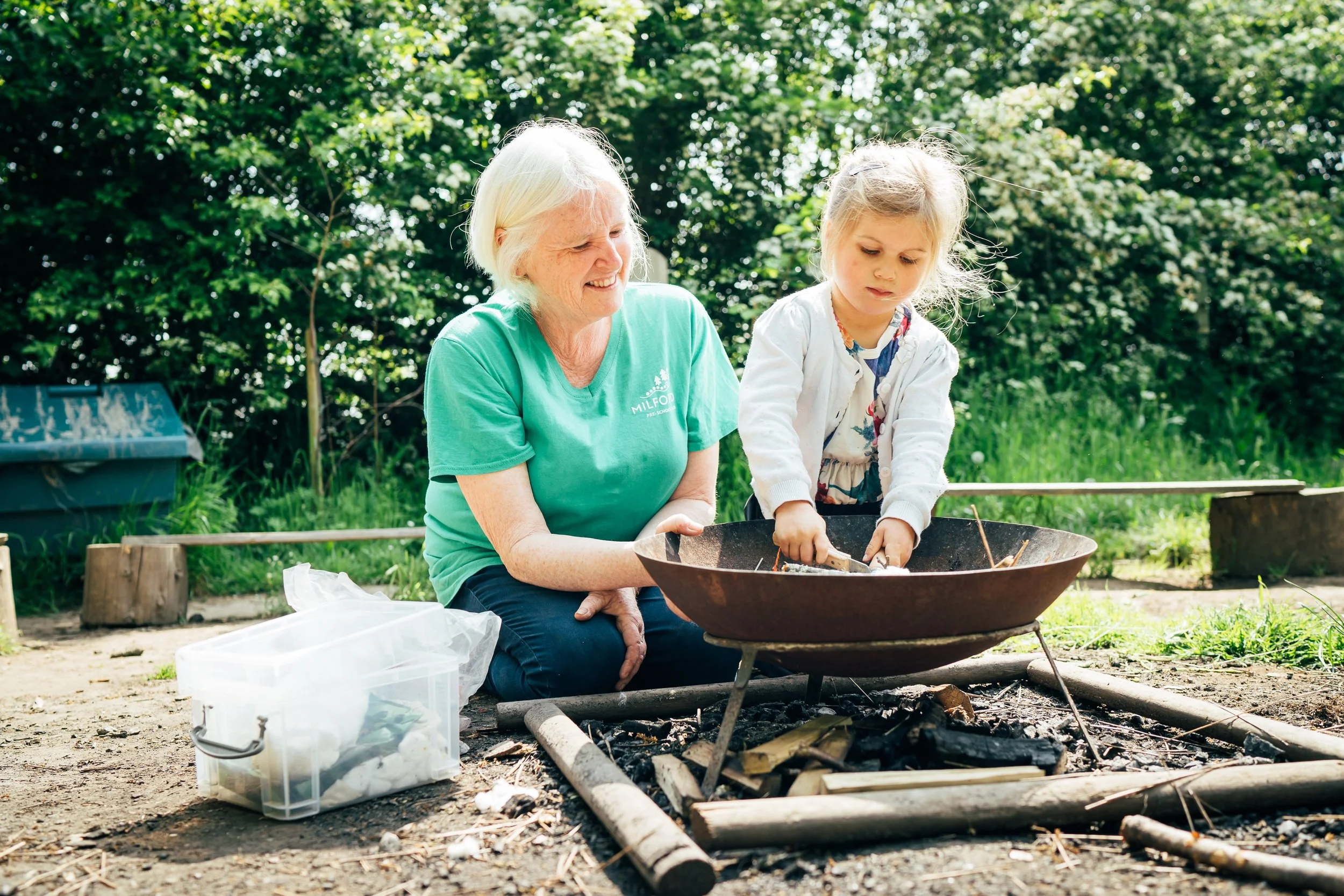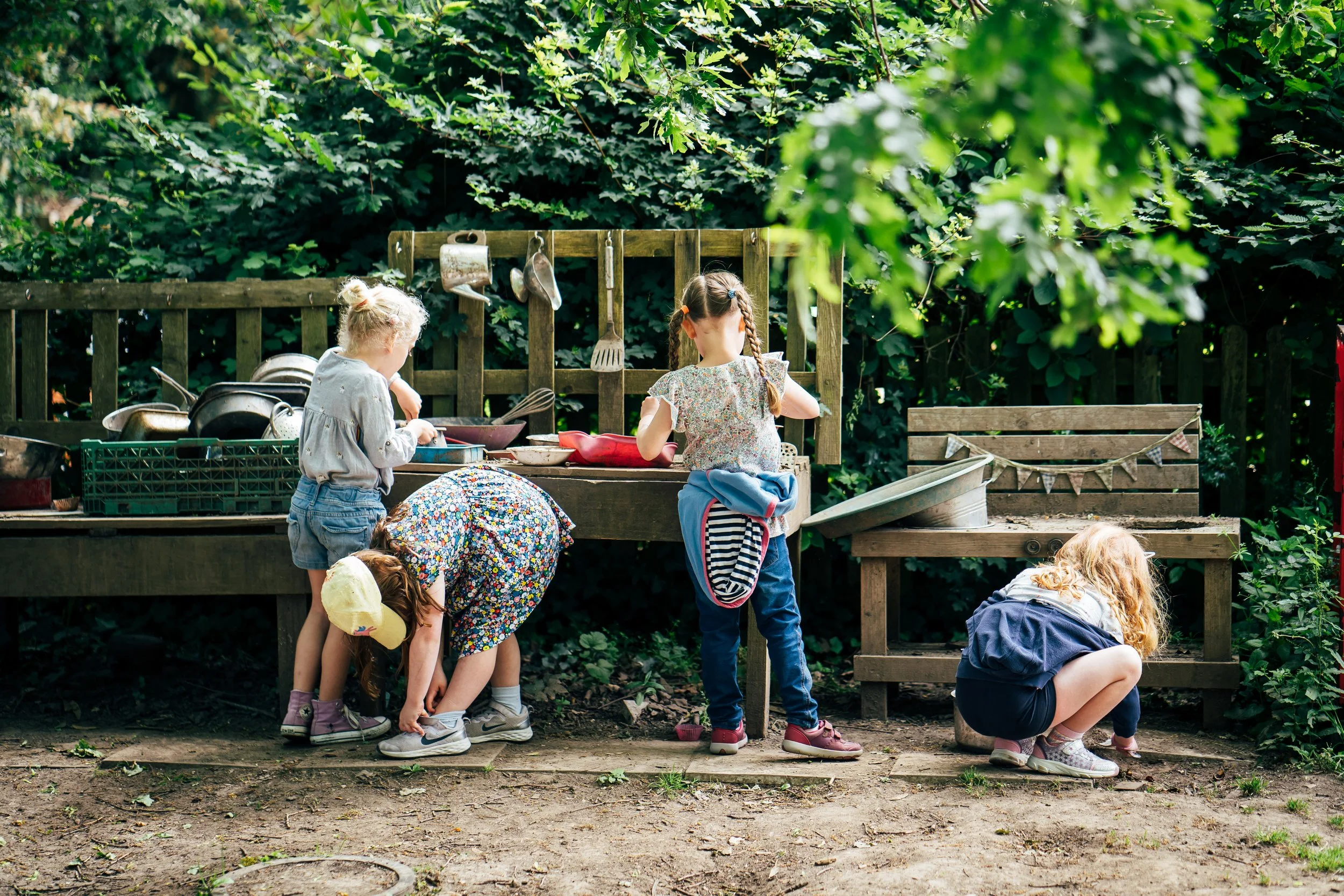
“Forest School aims to promote the holistic development of all those involved, fostering resilient, confident, independent and creative learners” - Principle 3
We are extremely proud to say that we are the only accredited forest school provider in Hampshire. Forest school is an integral part of the provision provided for the children in our setting and is expertly led by our, experienced level 3 Forest School Leader. It provides our children with an opportunity to connect with nature through their play. It is non-prescriptive; the children can choose from a wide range of enriching and hands on activities. Forest school gives our children space and freedom, away from technology and encourages investigation, collaboration and develops physical play.
We are extremely fortunate to share an on-site Forest School area, known as “Little Wood”, with the adjoining primary school, where we share equipment and resources.
Forest School Sessions
Our "Little Wood" Forest School area is a medium-sized natural space located in the back corner of the primary school's field. Although, according to our children, it has the feeling of being on the forest! Mainly due to the size of the trees and the various flora and fauna. We have enough space for discovery and a variety of learning. Our pre-school children attend 3 times a week and we always have at least two sessions weekly on offer in our Holiday Club setting
The children are shown and supported to understand and respect the ecological impact of the area, for instance, not touching the robin’s nest or picking the Bluebells. They are shown how to replace logs that are disturbed for bug hunting.
Our sessions aim to encourage and support the holistic learning of each individual child, such as climbing trees (physical development), mud kitchen play (Social development), Fire lighting (emotional development), bug hunting (linguistic development) and shelter building (cognitive development). We share successes with the child’s parents using our tapestry assessment online system and by holding child and family’s sessions. Children have the autonomy to choose their own activities or play, fostering a more comprehensive approach to learning. This stands in contrast to the indoor classroom setting, where such freedom is limited due to constraints related to space, time, and resources.









